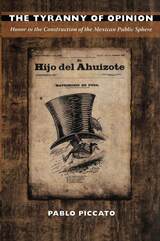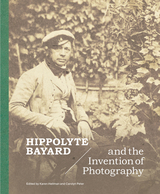
The story of how nineteenth-century European rulers conspired with Mexican conservatives in an outlandish plan to contain the rising US colossus by establishing Old World empire on its doorstep.
The outbreak of the US Civil War provided an unexpected opportunity for political conservatives across continents. On one side were European monarchs. Mere decades after its founding, the United States had become a threat to European hegemony; instability in the United States could be exploited to lay a rival low. Meanwhile, Mexican antidemocrats needed a powerful backer to fend off the republicanism of Benito Juárez. When these two groups found each other, the Second Mexican Empire was born.
Raymond Jonas argues that the Second Mexican Empire, often dismissed as a historical sideshow, is critical to appreciating the globally destabilizing effect of growing US power in the nineteenth century. In 1862, at the behest of Mexican reactionaries and with the initial support of Spain and Britain, Napoleon III of France sent troops into Mexico and installed Austrian archduke Ferdinand Maximilian as an imperial ruler who could resist democracy in North America. But what was supposed to be an easy victory proved a disaster. The French army was routed at the Battle of Puebla, and for the next four years, republican guerrillas bled the would-be empire. When the US Civil War ended, African American troops were dispatched to Mexico to hasten the French withdrawal.
Based on research in five languages and in archives across the globe, Habsburgs on the Rio Grande fundamentally revises narratives of global history. Far more than a footnote, the Second Mexican Empire was at the center of world-historic great-power struggles—a point of inflection in a contest for supremacy that set the terms of twentieth-century rivalry.

Tracing how notions of honor changed in nineteenth-century Mexico, Pablo Piccato examines legislation, journalism, parliamentary debates, criminal defamation cases, personal stories, urban protests, and the rise and decline of dueling in the 1890s. He highlights the centrality of notions of honor to debates over the nature of Mexican liberalism, describing how honor helped to define the boundaries between public and private life; balance competing claims of free speech, public opinion, and the protection of individual reputations; and motivate politicians, writers, and other men to enter public life. As Piccato explains, under the authoritarian rule of Porfirio Díaz, the state became more active in the protection of individual reputations. It implemented new restrictions on the press. This did not prevent people from all walks of life from defending their honor and reputations, whether in court or through violence. The Tyranny of Opinion is a major contribution to a new understanding of Mexican political history and the evolution of Mexican civil society.
READERS
Browse our collection.
PUBLISHERS
See BiblioVault's publisher services.
STUDENT SERVICES
Files for college accessibility offices.
UChicago Accessibility Resources
home | accessibility | search | about | contact us
BiblioVault ® 2001 - 2024
The University of Chicago Press









